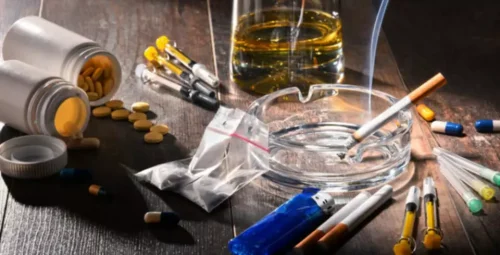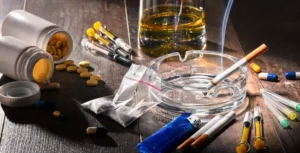
Within 13 hours of binge drinking, your systolic BP goes up by nearly four points and your diastolic BP goes up by 2.5 points, according to the Cochrane Database of Systemic Reviews. The last thing you want is for that casual drink after work or glass of wine at dinner to negatively impact your heart health. There’s a way to have a healthy, balanced relationship with alcohol that lets you enjoy a drink occasionally and celebrate with friends and family. But your heart is an important organ that should also be cared for, so be sure to drink in moderation, learn about binge drinking and know what your body can (and can’t) tolerate before opening that tab. That fourth drink at the bar may feel like it’s relaxing you, but it’s actually affecting your body differently than you might think. Alcohol can affect your blood pressure, causing it to go up temporarily.
Vasopressin levels

That means, if you’re living with other medical conditions and/or taking certain medications, this will all have an impact on how alcohol affects you. Let’s face it, a hangover in your mid-40s doesn’t feel the same as one in your early 20s. This is because your age plays a factor in how well you tolerate alcohol. While some people develop a tolerance to alcohol over time, this isn’t true for everyone — and this ability doesn’t last forever, Dr. Cho notes.
ways to control high blood pressure without medication
- 1835 participants with hypertension based on ACC/AHA 2017 guidelines in three most recent follow-up exams of the longitudinal Coronary Artery Risk Development in Young Adults cohort study (2005–2016).
- And if you have a history of high blood pressure, it’s best to avoid alcohol completely or drink only occasionally, and in moderation.
- On the other hand, even people who do not drink can develop high blood pressure for other reasons.
- “There is an elevated risk not only of increased heart rate, but of an irregular heart rhythm, including conditions like atrial fibrillation,” says Dr. Desai.
- One drink equals 12 ounces of beer, 5 ounces of wine, or 1.5 ounces of liquor, per the AHA.
In this systematic review and meta-analysis, we searched MedLine,Embase, CENTRAL, and ClinicalTrials. We also searched reference lists of identifiedarticles and published meta-analyses and reviews. We did random-effects meta-analyses stratified by amountof alcohol intake at baseline. For the UK, we alcohol lowers blood pressure modelled the effect of a reduction of alcoholconsumption for 50% of the population drinking more than two standard drinksper day (ie, 12 g pure alcohol per drink). If acontrol group in a parallel-group trial reported a reduction in alcoholconsumption, we included it as a “reduction of alcohol” group.Estimates of intervention effects by sex were preferred.
Associated Data
Light-moderate drinking (defined as up to two drinks a day for men, one for women) has shown a subtle drop in blood pressure in some cases. In small amounts, it has been shown to lower blood pressure by 2 to 4 mm Hg (millimeters of mercury) in women. Most experts agree, though, that does not show a significant enough drop to advise drinking for an entire population. A 2019 study suggests that drinking hibiscus tea twice per day alongside lifestyle and dietary strategies may help reduce blood pressure in people with stage 1 hypertension. Older adults — drinkers, nondrinkers, it doesn’t matter — are already at risk for hypertension. Research suggests that 74.5 percent of people 60 and older have high blood pressure, compared with 54.5 percent of adults ages 40 to 59.

First-Stage Analyses
One drink equals 12 fluid ounces of beer, 5 ounces of wine or 1.5 ounces of 80-proof liquor. If you already have high blood pressure, your doctor may have advised you to drink alcohol in moderation and cut back on your overall alcohol intake. Weight gain will raise your chance of getting high blood pressure. It may affect the level of the medicine in the body or cause more side effects. To minimize the potential health risks of alcohol, the National Institutes of Health recommends either abstaining from alcohol entirely or drinking in moderation. The initial buzz and immediate effects of alcohol may be familiar.
- We are also moderately certain that high‐dose alcohol decreased blood pressure within six hours, and the effect lasted up to 12 hours.
- So, it’s important to think about your overall health and talk to a healthcare provider about your personal risk factors.
- Some researchers are involved in organizations with ties to the alcohol industry.
- Excessive alcohol intake, in particular, can adversely impact various aspects of your well-being, from your immediate safety to your long-term health.
- Her nutrition philosophy is to dig deeper and identify the root causes of people’s health concerns using a holistic, integrative and functional approach.
- Here is how drinking levels are defined according to the National Institute on Alcohol Abuse and Alcoholism.
- This can cause you to develop an irregular heartbeat, called atrial fibrillation, which can increase your risk of stroke, heart attack and heart failure.
- The Centers for Disease Control and Prevention defines light drinking as three drinks or fewer per week and moderate drinking as no more than one drink per day for women and up to two per day for men.
- Drinking excessive alcohol is considered one of the most common causes of raised blood pressure.
The bottom line, Klatsky says, is you can’t make a drinking rule that applies broadly for people with high blood pressure. Alcohol prevents the body’s baroreceptors from detecting a need to stretch the blood vessels and increase their diameter, causing an increase in blood pressure. Another potential mechanism is the increase in cortisol levels. Cortisol is a hormone that regulates the body’s response to stress.
Similar articles

First, as the analysis is restricted to Black and White men and women from their late thirties to early sixties, our findings may not be generalizable to adults who are older or younger, or from other racial or ethnic backgrounds. Second, as noted, medication adherence was measured using a single question that has not been validated and may not be as sensitive as other measurements of adherence. Similarly, in years 25 and 30, diet was assessed in what is likely a less robust manner than through the complete diet history, as in year 20. While this method has been used similarly in the past when full diet histories were unavailable,23 it may not as comprehensively capture diet quality.

About Mayo Clinic
Chronic alcohol consumption can also lead to a deficiency in vitamin B1 (thiamine), potentially resulting in serious neurological disorders like Wernicke-Korsakoff syndrome, she adds. “Long-term heavy drinking may contribute to cognitive decline and increase the risk of dementia and neurodegenerative diseases, such as Alzheimer’s disease and Parkinson’s disease,” adds Andrews. Risk factors for high blood pressure include smoking, eating a diet high in sodium, and low physical activity levels. However, current recommendations like those from the Centers for Disease Control and Prevention (CDC) focus on limiting alcohol to one drink a day for women and two drinks a day for men. “Adults above the age of 50 are at much higher risk of heart attack and stroke than they are of any possible harmful effects to light-moderate drinking,” Klatsky says. “So even if they have high blood pressure, they could see the health benefit from something like a glass of red wine a day.”